This page is from past events.
Please return to the home page for current info.
The Colored Conventions Movement
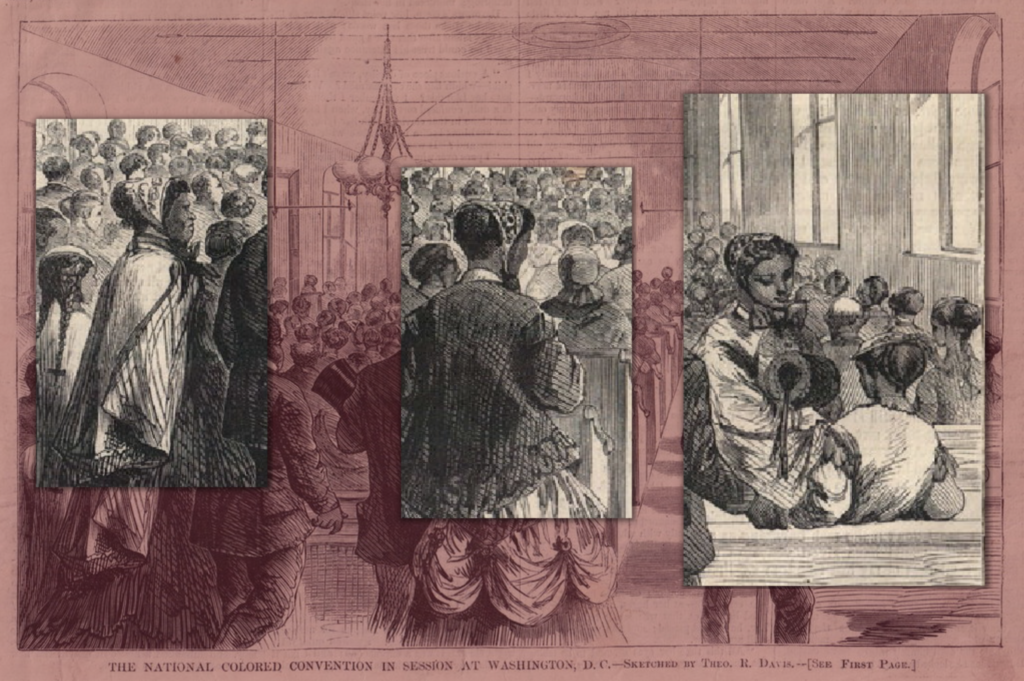
With your help, we aim to bring this important history of Black activism to light
From 1830 until well after the Civil War, African Americans gathered across the United States and Canada to participate in political meetings held at the state and national levels. A cornerstone of Black organizing in the nineteenth century, these “Colored Conventions” brought Black men and women together in a decades-long campaign for civil and human rights. The Colored Conventions anticipated the rise of the NAAACP and the Civil Rights Movement.
Participants preserved the legacy of the Colored Conventions movement through the records that they kept. Delegates produced “minutes,” or transcriptions of the meetings, which include role calls and reports from various committees, including committees on civil rights, the Black press, and education, to name just a few of the topics that arose at conventions. We also know about Colored Conventions through newspaper articles that reported on them. Minutes and newspaper articles are some of the historical documents that you will get to transcribe on Douglass Day 2022.
Black Women in the Colored Conventions Movement
We know that Black women played important roles in the Colored Conventions. They were at the podium and behind the scenes. Yet they were often left out of the official records or the newspaper reports. We are going to lift up their memories this year by challenging everyone to help us find clues to the important work these women did.
Transcribing helps us rediscover these histories of Black activism
The records from the Colored Conventions exist today in hundreds of different places across the country. Over the past ten years, a group at the University of Delaware and Penn State called the Colored Conventions Project (CCP) has worked to gather and digitize these records. The collections of the CCP are the first of a kind. We can study and learn about these histories in ways that were previously impossible.
We need help from everyone
Many of the files gathered by the CCP are still difficult to search or share. We are asking for help from everyone to transcribe the documents. Also, we will ask for your help to find the names of everyone who attended these conventions — and especially the names of Black women. Our work together will change the history of African Americans and the larger struggle for equality and civil rights. On behalf of future generations of teachers and students, we thank you for your contributions!
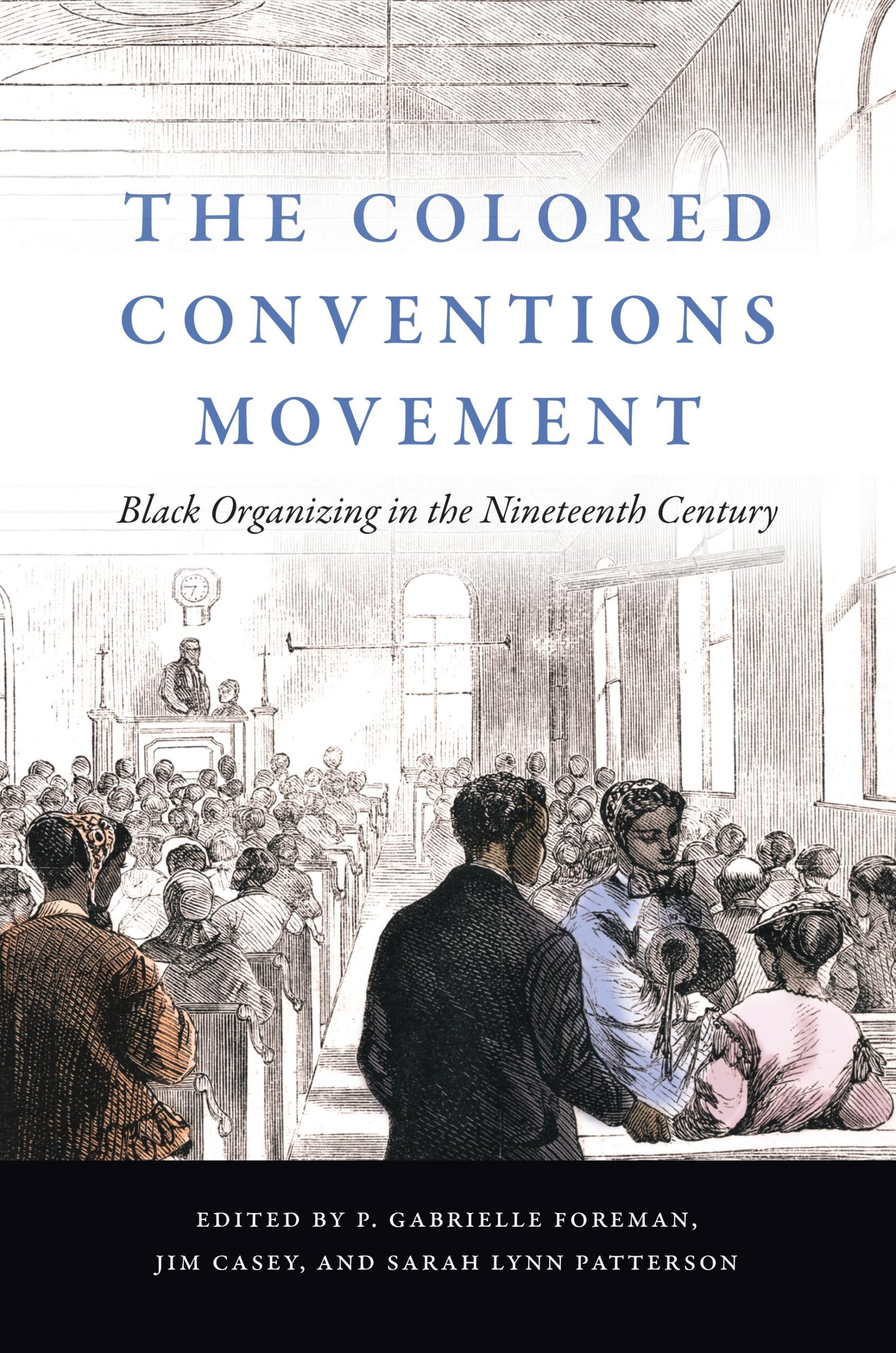
The Colored Conventions Movement: Black Organizing in the Nineteenth Century
Buy the book at UNC Press | Bookshop
This book of essays is the first to focus on the Colored Conventions movement, the nineteenth century’s longest campaign for Black civil rights. Well before the founding of the NAACP and other twentieth-century pillars of the civil rights movement, tens of thousands of Black leaders organized state and national conventions across North America.
Over seven decades, the Colored Conventinos advocated for social justice and against slavery, protesting state-sanctioned and mob violence while demanding voting, legal, labor, and educational rights. While Black-led activism in this era is often overshadowed by the attention paid to the abolition movement, this collection centers Black activist networks, influence, and institution building.
Collectively, the essays in this book highlight the vital role of the Colored Conventions in the lives of thousands of early organizers, including many of the most famous writers, ministers, politicians, and entrepreneurs in the long history of Black activism.
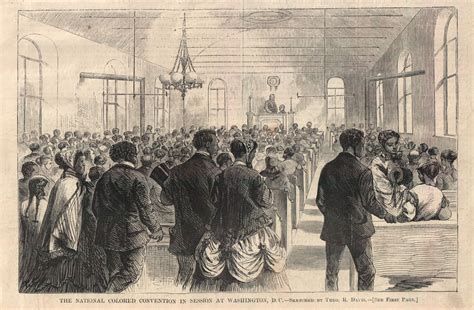
The Colored Conventions Project
The Colored Conventions Project (CCP) is a scholarly and community research project dedicated to bringing the seven decades-long history of nineteenth-century Black organizing to digital life. Mirroring the collective nature of the nineteenth-century Colored Conventions, CCP uses innovative, inclusive models and partnerships to locate, transcribe, and archive the documentary record related to this nearly forgotten history and to curate digital exhibits that highlight its stories, events and themes.
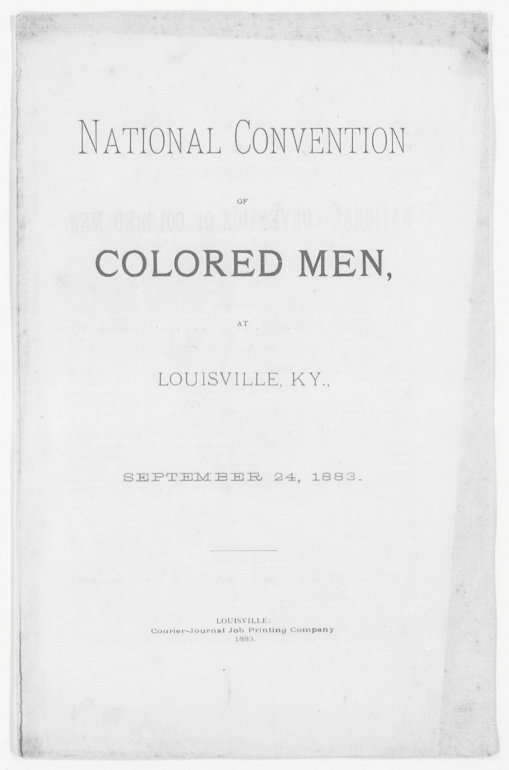
Read “Why Hold a Colored Convention?”
Read the speech delivered by Frederick Douglass on the need for Black political organizing and activism.
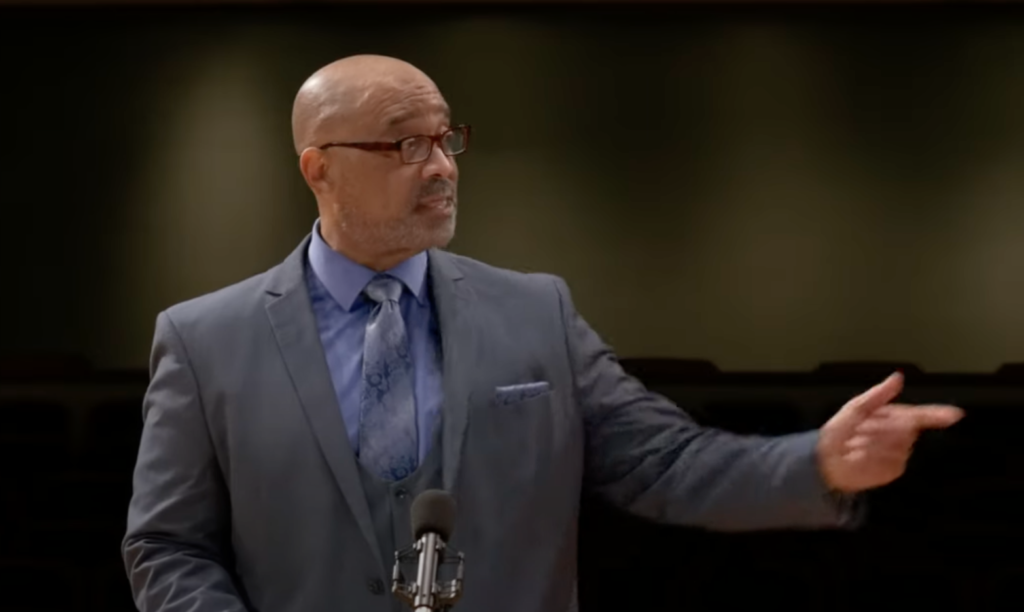
Watch “Why Hold a Colored Convention”
Watch the dramatic reading performed by Hassan El-Amin and learn more about this powerful speech at the 1883 national Colored Convention in Louisville, Kentucky.
Reflection Questions
- How did Colored Conventions delegates discuss issues?
- Imagine that you are helping to organize a convention. What resources would you need? What jobs would people need to do? What topics or issues should the convention address?
- What are the legacies of the Colored Conventions today?